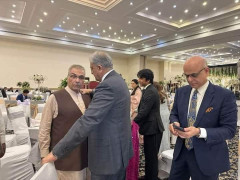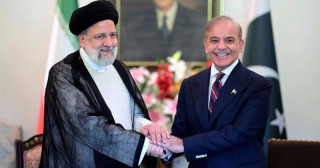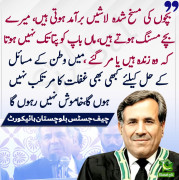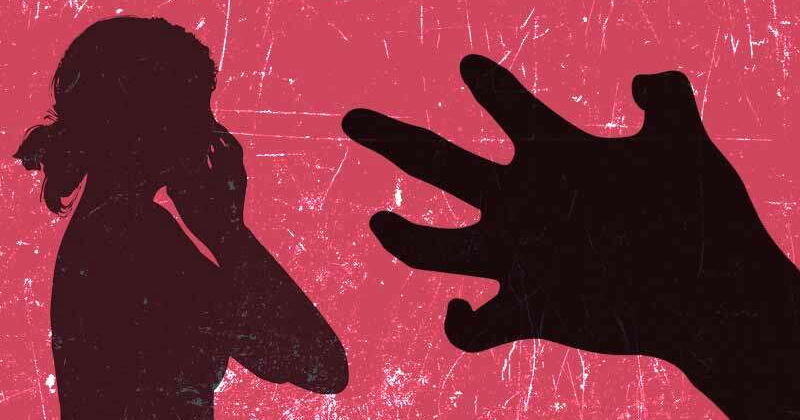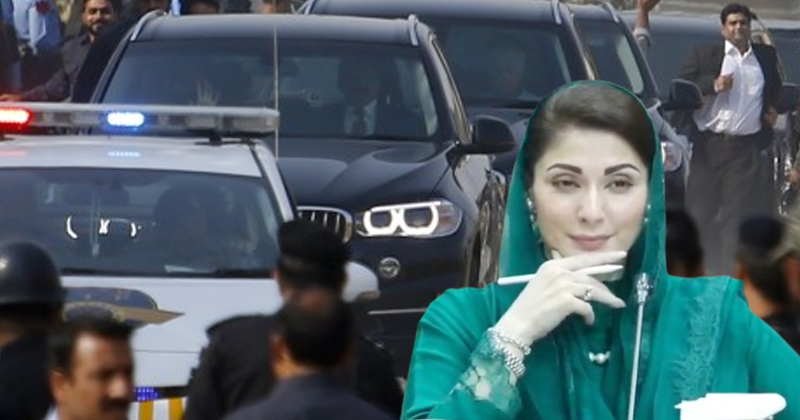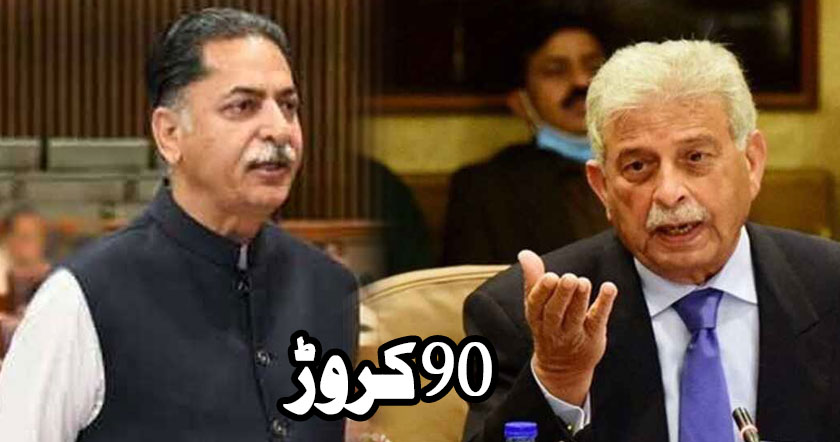
You are using an out of date browser. It may not display this or other websites correctly.
You should upgrade or use an alternative browser.
You should upgrade or use an alternative browser.
اسلامی تعلیمات اب دہشت گردی تصور کی جائیں 
- Thread starter QaiserMirza
- Start date
Re: اسلامی تعلیمات اب دہشت گردی تصور کی جائیں
They have no clue of Islam as they interpret Islam with their negativity that they have, True Islam needs to be taught to them, I will mention things here that are real Islam.
Allah S.W.T. has given us two basic rules to follow.
1. Hoqooq Allah S.W.T.
2. Haqooq ul abad.
Out of these tow rule Allah S.W.T. has told us that he will on the dy of Judgement forgive his rules as he all mercy, but will not be able forgive Haqooq ul abad unless and until we ask forgiveness from the person we bulldozed the rule of.
CHAPTER TWO: BASIC HUMAN RIGHTS
The first thing that we find in Islam in this connection is that it lays down some rights for man as a human being. In other words it means that every man whether he belongs to this country or that, whether he is a believer or unbeliever, whether he lives in some forest or is found in some desert, whatever be the case, he has some basic human rights simply because he is a human being, which should be recognized by every Muslim. In fact it will be his duty to fulfil these obligations.
1. The Right to Life
The first and the foremost basic right is the right to live and respect human life. The Holy Quran lays down:
Whosoever kills a human being without (any reason like) man slaughter, or corruption on earth, it is as though he had killed all mankind ... (5:32)
As far as the question of taking life in retaliation for murder or the question of punishment for spreading corruption on this earth is con- cerned, it can be decided only by a proper and competent court of law. If there is any war with any nation or country, it can be decided only by a properly established government. In any case, no human being has any right by himself to take human life in retaliation or for causing mischief on this earth. Therefore it is incumbent on every human being that under no circumstances should he be guilty of taking a human life. If anyone has murdered a human being, it is as if he has slain the entire human race. These instructions have been repeated in the Holy Quran in another place saying:
Do not kill a soul which Allah has made sacred except through the due process of law ... (6:151)
Here also homicide has been distinguished from destruction of life carried out in pursuit of justice. Only a proper and competent court will be able to decide whether or not an individual has forfeited his right to life by disregarding the right to life and peace of other human beings. The Prophet, may God's blessings be on him, has declared homicide as the greatest sin only next to polytheism. The Tradition of the Prophet reads: "The greatest sins are to associate something with God and to kill human beings." In all these verses of the Quran and the Traditions of the Prophet the word 'soul' (nafs) has been used in general terms without any distinction or particularization which might have lent itself to the elucidation that the persons belong- ing to one's nation, the citizens of one's country, the people of a particular race or religion should not be killed. The injunction applies to all human beings and the destruction of human life in itself has been prohibited.
Do not kill a soul which Allah has made sacred except through the due process of law ... (6:151)
Here also homicide has been distinguished from destruction of life carried out in pursuit of justice. Only a proper and competent court will be able to decide whether or not an individual has forfeited his right to life by disregarding the right to life and peace of other human beings. The Prophet, may God's blessings be on him, has declared homicide as the greatest sin only next to polytheism. The Tradition of the Prophet reads: "The greatest sins are to associate something with God and to kill human beings." In all these verses of the Quran and the Traditions of the Prophet the word 'soul' (nafs) has been used in general terms without any distinction or particularization which might have lent itself to the elucidation that the persons belong- ing to one's nation, the citizens of one's country, the people of a particular race or religion should not be killed. The injunction applies to all human beings and the destruction of human life in itself has been prohibited.
Do not kill a soul which Allah has made sacred except through the due process of law ... (6:151)
Here also homicide has been distinguished from destruction of life carried out in pursuit of justice. Only a proper and competent court will be able to decide whether or not an individual has forfeited his right to life by disregarding the right to life and peace of other human beings. The Prophet, may God's blessings be on him, has declared homicide as the greatest sin only next to polytheism. The Tradition of the Prophet reads: "The greatest sins are to associate something with God and to kill human beings." In all these verses of the Quran and the Traditions of the Prophet the word 'soul' (nafs) has been used in general terms without any distinction or particularization which might have lent itself to the elucidation that the persons belong- ing to one's nation, the citizens of one's country, the people of a particular race or religion should not be killed. The injunction applies to all human beings and the destruction of human life in itself has been prohibited.
2. The Right to the Safety of Life
3. Respect for the Chastity of Women
4. The Right to a Basic Standard of Life
Speaking about the economic rights the Holy Quran enjoins upon its followers:
And in their wealth there is acknowledged right for the needy and destitute. (51:19)
5. Individual's Right to Freedom
Islam has clearly and categorically forbidden the primitive practice of capturing a free man, to make him a slave or to sell him into slavery. On this point the clear and unequivocal words of the Prophet (S) are as follows: "There are three categories of people against whom I shall myself be a plaintiff on the Day of Judgement. Of these three, one is he who enslaves a free man, then sells him and eats this money" (al-Bukhari and Ibn Majjah). The words of this Tradition of the Prophet are also general, they have not been qualified or made applicable to a particular nation, race, country or followers of a particular religion. The Europeans take great pride in claiming that they abolished slavery from the world, though they had the decency to do so only in the middle of the last century. Before this, these Western powers had been raiding Africa on a very large scale, capturing their free men, putting them in bondage and transporting them to their new colonies. The treatment which they have meted out to these unfortunate people has been worse than the treatment given to animals. The books written by the Western people themselves bear testimony to this fact.
6. The Right to Justice
This is a very important and valuable right which Islam has given to man as a human being. The Holy Quran has laid down: "Do not let your hatred of a people incite you to aggression" (5:2). "And do not let ill-will towards any folk incite you so that you swerve from dealing justly. Be just; that is nearest to heedfulness" (5:8). Stressing this point the Quran again says: "You who believe stand steadfast before God as witness for (truth and) fairplay" (4:135). This makes the point clear that Muslims have to be just not only with ordinary human beings but even with their enemies. In other words, the justice to which Islam invites her followers is not limited only to the citizens of their own country, or the people of their own tribe, nation or race, or the Muslim community as a whole, but it is meant for all the human beings of the world. Muslims therefore, cannot be unjust to anyone. Their permanent habit and character should be such that no man should ever fear injustice at their hands, and they should treat every human being everywhere with justice and fairness.
. Equality of Human Beings
Islam not only recognizes absolute equality between men irrespective of any distinction of colour, race or nationality, but makes it an important and significant principle, a reality. The Almighty God has laid down in the Holy Quran: "O mankind, we have created you from a male and female." In other words all human beings are brothers to one another. They all are the descendants from one father and one mother. "And we set you up as nations and tribes so that you may be able to recognize each other" (49:13). This means that the division of human beings into nations, races, groups and tribes is for the sake of distinction, so that people of one race or tribe may meet and be acquainted with the people belonging to another race or tribe and cooperate with one another. This division of the human race is neither meant for one nation to take pride in its superiority over others nor is it meant for one nation to treat another with contempt or disgrace, or regard them as a mean and degraded race and usurp their rights. "Indeed, the noblest among you before God are the most heedful of you" (49:13). In other words the superiority of one man over another is only on the basis of God-consciousness, purity of character and high morals, and not on the basis of colour, race, language or nationality, and even this superiority based on piety and pure conduct does not justify that such people should play lord or assume airs of superiority over other human beings. Assuming airs of superiority is in itself a reprehensible vice which no God-fearing and pious man can ever dream of perpetrating. Nor does the righteous have more privileged rights over others, because this runs counter to human equality, which has been laid down in the beginning of this verse as a general principle. From the moral point of view, goodness and virtue is in all cases better than vice and evil.
. The Right to Co-operate and Not to Co-operate
Islam has prescribed a general principle of paramount importance and universal application saying: "Co-operate with one another for virtue and heedfulness and do not co-operate with one another for the purpose of vice and aggression" (5:2). This means that the man who undertakes a noble and righteous work, irrespective of the fact whether he is living at the North Pole or the South Pole, has the right to expect support and active co-operation from the Muslims. On the contrary he who perpetrates deeds of vice and aggression, even if he is our closest relation or neighbour, does not have the right to win our support and help in the name of race, country, language or nationality, nor should he have the expectation that Muslims will co-operate with him or support him. Nor is it permissible for Muslims to co-operate with him. The wicked and vicious person may be our own brother, but he is not of us, and he can have no help or support from us as long as he does not repent and reform his ways. On the other hand the man who is doing deeds of virtue and righteousness may have no kinship with Muslims, but Muslims will be his companions and supporters or at least his well- wishers.
2. The Protection of Honour
The second important right is the right of the citizens to the protection of their honour. In the address delivered on the occasion of the Farewell Hajj, to which I have referred earlier, the Prophet did not only prohibit the life and property of the Muslims to one another, but also any encroachment upon their honour, respect and chastity were forbidden to one another. The Holy Quran clearly lays down:
(a) "You who believe, do not let one (set of) people make fun of another set. (b) Do not defame one another. (c) Do not insult by using nicknames. (d) And do not backbite or speak ill of one another" (49:11-12).
4. The Security of Personal Freedom
5. The Right to Protest Against Tyranny
6. Freedom of Expression
Islam gives the right of freedom of thought and expression to all citizens of the Islamic State on the condition that it should be used for the propagation of virtue and truth and not for spreading evil and wickedness. This Islamic concept of freedom of expression is much superior to the concept prevalent in the West. Under no circumstances would Islam allow evil and wickedness to be propagated. It also does not give anybody the right to use abusive or offensive language in the name of criticism. The right to freedom of expression for the sake of propagating virtue and righteousness is not only a right in Islam but an obligation. One who tries to deny this right to his people is openly at war with God, the All-Powerful. And the same thing applies to the attempt to stop people from evil. Whether this evil is perpetrated by an individual or by a group of people or the government of one's own country, or the government of some other country; it is the right of a Muslim and it is also his obligation that he should warn and reprimand the evil-doer and try to stop him from doing it. Over and above, he should openly and publicly condemn it and show the course of righteousness which that individual, nation or government should adopt.
The Holy Quran has described this quality of the Faithful in the following words: "They enjoin what is proper and forbid what is improper" (9:71). In contrast, describing the qualities of a hypocrite, the Quran mentions: "They bid what is improper and forbid what is proper" (9:67). The main purpose of an Islamic Government has been defined by God in the Quran as follows: "If we give authority to these men on earth they will keep up prayers, and offer poor-due, bid what is proper and forbid what is improper" (22:41). The Prophet has said: "If any one of you comes across an evil, he should try to stop it with his hand (using force), if he is not in a position to stop it with his hand then he should try to stop it by means of his tongue (meaning he should speak against it). If he is not even able to use his tongue then he should at least condemn it in his heart. This is the weakest degree of faith" (Muslim). This obligation of inviting people to righteousness and forbidding them to adopt the paths of evil is incumbent on all true Muslims. If any government deprives its citizens of this right, and prevents them from performing this duty, then it is in direct conflict with the injunction of God. The government is not in conflict with its people, but is in conflict with God. In this way it is at war with God and is trying to usurp that right of its people which God has conferred not only as a right but as an obligation. As far as the government which itself propagates evil, wickedness and obscenity and interferes with those who are inviting people to virtue and righteousness is concerned, according to the Holy Quran it is the government of the hypocrites.
13. Rulers Not Above the Law
Islam clearly insists and demands that all officials of the Islamic State, whether he be the head or an ordinary employee, are equal in the eyes of the law. None of them is above the law or can claim immunity. Even an ordinary citizen in Islam has the right to put forward a claim or file a legal complaint against the highest executive of the country. The Caliph 'Umar said, "I have myself seen the Prophet, may God's blessings be on him, taking revenge against himself (penalizing himself for some shortcoming or failing)." On the occasion of the Battle of Badr, when the Prophet was straightening the rows of the Muslim army he hit the belly of a soldier in an attempt to push him back in line. The soldier complained "O Prophet, you have hurt me with your stick." The Prophet immediately bared his belly and said: "I am very sorry, you can revenge by doing the same to me." The soldier came forward and kissed the abdomen of the Prophet and said that this was all that he wanted.
A woman belonging to a high and noble family was arrested in connection with a theft. The case was brought to the Prophet, and it was recommended that she may be spared the punishment of theft. The Prophet replied: "The nations that lived before you were destroyed by God because they punished the common men for their offences and let their dignitaries go unpunished for their crimes; I swear by Him (God) who holds my life in His hand that even if Fatimah, the daughter of Muhammad, has committed this crime then I would have amputated her hand." During the caliphate of 'Umar, Muhammad the son of 'Amr ibn al-'As the Governor of Egypt, whipped an Egyptian. The Egyptian went to Medina and lodged his complaint with the Righteous Caliph, who immediately summoned the Governor and his son to Medina. When they appeared before him in Medina, the Caliph handed a whip to the Egyptian complainant and asked him to whip the son of the Governor in his presence. After taking his revenge when the Egyptian was about to hand over the whip to 'Umar, he said to the Egyptian: "Give one stroke of the whip to the Honourable Governor as well. His son would certainly have not beaten you were it not for the false pride that he had in his father's high office." The plaintiff submitted: "The person who had beaten me, I have already avenged myself on him." 'Umar said: "By God, if you had beaten him (the Governor) I would not have checked you from doing so. You have spared him of your own free will." Then he ('Umar) angrily turned to 'Amr ibn al-'As and said: "O 'Amr, when did you start to enslave the people, though they were born free of their mothers?" When the Islamic State was flourishing in its pristine glory and splendour, the common people could equally lodge complaints against the caliph of the time in the court and the caliph had to appear before the qadi to answer the charges. And if the caliph had any complaint against any citizen, he could not use his administrative powers and authority to set the matter right, but had to refer the case to the court of law for proper adjudication.
CHAPTER FOUR: RIGHTS OF ENEMIES AT WAR
After dealing with the rights of the citizens of an Islamic State, I would like to briefly discuss the rights which Islam has conferred on its enemies. In the days when Islam came into focus the world was completely unaware of the concept of humane and decent rules of war. The West became conscious of this concept for the first time through the works of the seventeenth century thinker, Grotius. But the actual codification of the 'international law' in war began in the middle of the nineteenth century. Prior to this no concept of civilized behaviour in war was found in the West. All forms of barbarity and savagery were perpetrated in war, and the rights of those at war were not even recognized, let alone respected. The laws which were framed in this field during the nineteenth century or over the following period up to the present day, cannot be called 'laws' in the real sense of the word. They are only in the nature of conventions and agreements and calling them 'international law' is actually a kind of misnomer, because no nation regards them binding when they are at war, unless, of course, when the adversaries also agree to abide by them. In other words, these civilized laws imply that if our enemies respect them then we shall also abide by them, and if they ignore these human conventions and take recourse to barbaric and cruel ways of waging war, then we shall also adopt the same or similar techniques. It is obvious that such a course which depends on mutual acceptance and agreement cannot be called 'law'. And this is the reason why the provisions of this so-called 'inter- national law' have been flouted and ignored in every way, and every time they have been revised, additions or deletions have been made in them. Law of War and Peace in Islam:
The rules which have been framed by Islam to make war civilized and humane, are in the nature of law, because they are the injunctions of God and His Prophet which are followed by Muslims in all circum- stances, irrespective of the behaviour of the enemy. It is now for the scholars to find out how far the West has availed of the laws of war given by Islam thirteen hundred years ago; and even after the adapta- tion of some of the laws of Islam how far the West attained those heights of civilized and humane methods of warfare which Muslims reached through the blessings of Islam. Western writers have often asserted that the Prophet had borrowed everything in his teachings from the Jews and the Christians. Instead of saying anything in its refutation I will only recommend the reader to refer to the Bible6 so that he can see which methods of war are recommended by the sacred Book of these Western claimants to civilization and culture.
We have examined in some detail the basic human rights that Islam has conferred on man. Let us now find out what rights and obligations Islam recognizes for an enemy.
The Rights of the Non-Combatants:
Islam has first drawn a clear line of distinction between the combatants and the non-combatants of the enemy country. As far as the non-combatant population is concerned such as women, children, the old and the infirm, etc., the instructions of the Prophet are as follows: "Do not kill any old person, any child or any woman" (Abu Dawud). "Do not kill the monks in monasteries" or "Do not kill the people who are sitting in places of worship" (Musnad of Ibn Hanbal).
During a war, the Prophet saw the corpse of a woman lying on the ground and observed: "She was not fighting. How then she came to be killed?" From this statement of the Prophet the exegetists and jurists have drawn the principle that those who are non-combatants should not be killed during or after the war.
The Rights of the Combatants:
Now let us see what rights Islam has conferred on the combatants.
1. Torture with Fire
In the hadith there is a saying of the Prophet that: "Punishment by fire does not behove anyone except the Master of the Fire" (Abu Dawud). The injunction deduced from this saying is that the adversary should not be burnt alive.
2. Protection of the Wounded
"Do not attack a wounded person"-thus said the Prophet. This means that the wounded soldiers who are not fit to fight, nor actually fighting, should not be attacked.
3. The Prisoner of War Should not be Slain
"No prisoner should be put to the sword"-a very clear and unequivocal instruction given by the Prophet (S).
4. No one Should be Tied to be Killed
"The Prophet has prohibited the killing of anyone who is tied or is in captivity."
5. No Looting and Destruction in the Enemy's Country
Muslims have also been instructed by the Prophet that if they should enter the enemy's territory, they should not indulge in pillage or plunder nor destroy the residential areas, nor touch the property of anyone except those who are fighting with them. It has been narrated in the hadith: "The Prophet has prohibited the believers from loot and plunder" (al-Bukhari; Abu Dawud). His injunction is: "The loot is no more lawful than the carrion" (Abu Dawud). Abu Bakr al-Siddiq used to instruct the soldiers while sending them to war, "Do not destroy the villages and towns, do not spoil the cultivated fields and gardens, and do not slaughter the cattle." The booty of war which is acquired from the battleground is altogether different from this. It consists of the wealth, provisions and equipment captured only from the camps and military headquarters of the combatant armies.
So far this only tip of the whole Islamic Law but read it and see how Islam is the most merciful rational and humbling Religion of all times.
They have no clue of Islam as they interpret Islam with their negativity that they have, True Islam needs to be taught to them, I will mention things here that are real Islam.
Allah S.W.T. has given us two basic rules to follow.
1. Hoqooq Allah S.W.T.
2. Haqooq ul abad.
Out of these tow rule Allah S.W.T. has told us that he will on the dy of Judgement forgive his rules as he all mercy, but will not be able forgive Haqooq ul abad unless and until we ask forgiveness from the person we bulldozed the rule of.
CHAPTER TWO: BASIC HUMAN RIGHTS
The first thing that we find in Islam in this connection is that it lays down some rights for man as a human being. In other words it means that every man whether he belongs to this country or that, whether he is a believer or unbeliever, whether he lives in some forest or is found in some desert, whatever be the case, he has some basic human rights simply because he is a human being, which should be recognized by every Muslim. In fact it will be his duty to fulfil these obligations.
1. The Right to Life
The first and the foremost basic right is the right to live and respect human life. The Holy Quran lays down:
Whosoever kills a human being without (any reason like) man slaughter, or corruption on earth, it is as though he had killed all mankind ... (5:32)
As far as the question of taking life in retaliation for murder or the question of punishment for spreading corruption on this earth is con- cerned, it can be decided only by a proper and competent court of law. If there is any war with any nation or country, it can be decided only by a properly established government. In any case, no human being has any right by himself to take human life in retaliation or for causing mischief on this earth. Therefore it is incumbent on every human being that under no circumstances should he be guilty of taking a human life. If anyone has murdered a human being, it is as if he has slain the entire human race. These instructions have been repeated in the Holy Quran in another place saying:
Do not kill a soul which Allah has made sacred except through the due process of law ... (6:151)
Here also homicide has been distinguished from destruction of life carried out in pursuit of justice. Only a proper and competent court will be able to decide whether or not an individual has forfeited his right to life by disregarding the right to life and peace of other human beings. The Prophet, may God's blessings be on him, has declared homicide as the greatest sin only next to polytheism. The Tradition of the Prophet reads: "The greatest sins are to associate something with God and to kill human beings." In all these verses of the Quran and the Traditions of the Prophet the word 'soul' (nafs) has been used in general terms without any distinction or particularization which might have lent itself to the elucidation that the persons belong- ing to one's nation, the citizens of one's country, the people of a particular race or religion should not be killed. The injunction applies to all human beings and the destruction of human life in itself has been prohibited.
Do not kill a soul which Allah has made sacred except through the due process of law ... (6:151)
Here also homicide has been distinguished from destruction of life carried out in pursuit of justice. Only a proper and competent court will be able to decide whether or not an individual has forfeited his right to life by disregarding the right to life and peace of other human beings. The Prophet, may God's blessings be on him, has declared homicide as the greatest sin only next to polytheism. The Tradition of the Prophet reads: "The greatest sins are to associate something with God and to kill human beings." In all these verses of the Quran and the Traditions of the Prophet the word 'soul' (nafs) has been used in general terms without any distinction or particularization which might have lent itself to the elucidation that the persons belong- ing to one's nation, the citizens of one's country, the people of a particular race or religion should not be killed. The injunction applies to all human beings and the destruction of human life in itself has been prohibited.
Do not kill a soul which Allah has made sacred except through the due process of law ... (6:151)
Here also homicide has been distinguished from destruction of life carried out in pursuit of justice. Only a proper and competent court will be able to decide whether or not an individual has forfeited his right to life by disregarding the right to life and peace of other human beings. The Prophet, may God's blessings be on him, has declared homicide as the greatest sin only next to polytheism. The Tradition of the Prophet reads: "The greatest sins are to associate something with God and to kill human beings." In all these verses of the Quran and the Traditions of the Prophet the word 'soul' (nafs) has been used in general terms without any distinction or particularization which might have lent itself to the elucidation that the persons belong- ing to one's nation, the citizens of one's country, the people of a particular race or religion should not be killed. The injunction applies to all human beings and the destruction of human life in itself has been prohibited.
2. The Right to the Safety of Life
3. Respect for the Chastity of Women
4. The Right to a Basic Standard of Life
Speaking about the economic rights the Holy Quran enjoins upon its followers:
And in their wealth there is acknowledged right for the needy and destitute. (51:19)
5. Individual's Right to Freedom
Islam has clearly and categorically forbidden the primitive practice of capturing a free man, to make him a slave or to sell him into slavery. On this point the clear and unequivocal words of the Prophet (S) are as follows: "There are three categories of people against whom I shall myself be a plaintiff on the Day of Judgement. Of these three, one is he who enslaves a free man, then sells him and eats this money" (al-Bukhari and Ibn Majjah). The words of this Tradition of the Prophet are also general, they have not been qualified or made applicable to a particular nation, race, country or followers of a particular religion. The Europeans take great pride in claiming that they abolished slavery from the world, though they had the decency to do so only in the middle of the last century. Before this, these Western powers had been raiding Africa on a very large scale, capturing their free men, putting them in bondage and transporting them to their new colonies. The treatment which they have meted out to these unfortunate people has been worse than the treatment given to animals. The books written by the Western people themselves bear testimony to this fact.
6. The Right to Justice
This is a very important and valuable right which Islam has given to man as a human being. The Holy Quran has laid down: "Do not let your hatred of a people incite you to aggression" (5:2). "And do not let ill-will towards any folk incite you so that you swerve from dealing justly. Be just; that is nearest to heedfulness" (5:8). Stressing this point the Quran again says: "You who believe stand steadfast before God as witness for (truth and) fairplay" (4:135). This makes the point clear that Muslims have to be just not only with ordinary human beings but even with their enemies. In other words, the justice to which Islam invites her followers is not limited only to the citizens of their own country, or the people of their own tribe, nation or race, or the Muslim community as a whole, but it is meant for all the human beings of the world. Muslims therefore, cannot be unjust to anyone. Their permanent habit and character should be such that no man should ever fear injustice at their hands, and they should treat every human being everywhere with justice and fairness.
. Equality of Human Beings
Islam not only recognizes absolute equality between men irrespective of any distinction of colour, race or nationality, but makes it an important and significant principle, a reality. The Almighty God has laid down in the Holy Quran: "O mankind, we have created you from a male and female." In other words all human beings are brothers to one another. They all are the descendants from one father and one mother. "And we set you up as nations and tribes so that you may be able to recognize each other" (49:13). This means that the division of human beings into nations, races, groups and tribes is for the sake of distinction, so that people of one race or tribe may meet and be acquainted with the people belonging to another race or tribe and cooperate with one another. This division of the human race is neither meant for one nation to take pride in its superiority over others nor is it meant for one nation to treat another with contempt or disgrace, or regard them as a mean and degraded race and usurp their rights. "Indeed, the noblest among you before God are the most heedful of you" (49:13). In other words the superiority of one man over another is only on the basis of God-consciousness, purity of character and high morals, and not on the basis of colour, race, language or nationality, and even this superiority based on piety and pure conduct does not justify that such people should play lord or assume airs of superiority over other human beings. Assuming airs of superiority is in itself a reprehensible vice which no God-fearing and pious man can ever dream of perpetrating. Nor does the righteous have more privileged rights over others, because this runs counter to human equality, which has been laid down in the beginning of this verse as a general principle. From the moral point of view, goodness and virtue is in all cases better than vice and evil.
. The Right to Co-operate and Not to Co-operate
Islam has prescribed a general principle of paramount importance and universal application saying: "Co-operate with one another for virtue and heedfulness and do not co-operate with one another for the purpose of vice and aggression" (5:2). This means that the man who undertakes a noble and righteous work, irrespective of the fact whether he is living at the North Pole or the South Pole, has the right to expect support and active co-operation from the Muslims. On the contrary he who perpetrates deeds of vice and aggression, even if he is our closest relation or neighbour, does not have the right to win our support and help in the name of race, country, language or nationality, nor should he have the expectation that Muslims will co-operate with him or support him. Nor is it permissible for Muslims to co-operate with him. The wicked and vicious person may be our own brother, but he is not of us, and he can have no help or support from us as long as he does not repent and reform his ways. On the other hand the man who is doing deeds of virtue and righteousness may have no kinship with Muslims, but Muslims will be his companions and supporters or at least his well- wishers.
2. The Protection of Honour
The second important right is the right of the citizens to the protection of their honour. In the address delivered on the occasion of the Farewell Hajj, to which I have referred earlier, the Prophet did not only prohibit the life and property of the Muslims to one another, but also any encroachment upon their honour, respect and chastity were forbidden to one another. The Holy Quran clearly lays down:
(a) "You who believe, do not let one (set of) people make fun of another set. (b) Do not defame one another. (c) Do not insult by using nicknames. (d) And do not backbite or speak ill of one another" (49:11-12).
4. The Security of Personal Freedom
5. The Right to Protest Against Tyranny
6. Freedom of Expression
Islam gives the right of freedom of thought and expression to all citizens of the Islamic State on the condition that it should be used for the propagation of virtue and truth and not for spreading evil and wickedness. This Islamic concept of freedom of expression is much superior to the concept prevalent in the West. Under no circumstances would Islam allow evil and wickedness to be propagated. It also does not give anybody the right to use abusive or offensive language in the name of criticism. The right to freedom of expression for the sake of propagating virtue and righteousness is not only a right in Islam but an obligation. One who tries to deny this right to his people is openly at war with God, the All-Powerful. And the same thing applies to the attempt to stop people from evil. Whether this evil is perpetrated by an individual or by a group of people or the government of one's own country, or the government of some other country; it is the right of a Muslim and it is also his obligation that he should warn and reprimand the evil-doer and try to stop him from doing it. Over and above, he should openly and publicly condemn it and show the course of righteousness which that individual, nation or government should adopt.
The Holy Quran has described this quality of the Faithful in the following words: "They enjoin what is proper and forbid what is improper" (9:71). In contrast, describing the qualities of a hypocrite, the Quran mentions: "They bid what is improper and forbid what is proper" (9:67). The main purpose of an Islamic Government has been defined by God in the Quran as follows: "If we give authority to these men on earth they will keep up prayers, and offer poor-due, bid what is proper and forbid what is improper" (22:41). The Prophet has said: "If any one of you comes across an evil, he should try to stop it with his hand (using force), if he is not in a position to stop it with his hand then he should try to stop it by means of his tongue (meaning he should speak against it). If he is not even able to use his tongue then he should at least condemn it in his heart. This is the weakest degree of faith" (Muslim). This obligation of inviting people to righteousness and forbidding them to adopt the paths of evil is incumbent on all true Muslims. If any government deprives its citizens of this right, and prevents them from performing this duty, then it is in direct conflict with the injunction of God. The government is not in conflict with its people, but is in conflict with God. In this way it is at war with God and is trying to usurp that right of its people which God has conferred not only as a right but as an obligation. As far as the government which itself propagates evil, wickedness and obscenity and interferes with those who are inviting people to virtue and righteousness is concerned, according to the Holy Quran it is the government of the hypocrites.
13. Rulers Not Above the Law
Islam clearly insists and demands that all officials of the Islamic State, whether he be the head or an ordinary employee, are equal in the eyes of the law. None of them is above the law or can claim immunity. Even an ordinary citizen in Islam has the right to put forward a claim or file a legal complaint against the highest executive of the country. The Caliph 'Umar said, "I have myself seen the Prophet, may God's blessings be on him, taking revenge against himself (penalizing himself for some shortcoming or failing)." On the occasion of the Battle of Badr, when the Prophet was straightening the rows of the Muslim army he hit the belly of a soldier in an attempt to push him back in line. The soldier complained "O Prophet, you have hurt me with your stick." The Prophet immediately bared his belly and said: "I am very sorry, you can revenge by doing the same to me." The soldier came forward and kissed the abdomen of the Prophet and said that this was all that he wanted.
A woman belonging to a high and noble family was arrested in connection with a theft. The case was brought to the Prophet, and it was recommended that she may be spared the punishment of theft. The Prophet replied: "The nations that lived before you were destroyed by God because they punished the common men for their offences and let their dignitaries go unpunished for their crimes; I swear by Him (God) who holds my life in His hand that even if Fatimah, the daughter of Muhammad, has committed this crime then I would have amputated her hand." During the caliphate of 'Umar, Muhammad the son of 'Amr ibn al-'As the Governor of Egypt, whipped an Egyptian. The Egyptian went to Medina and lodged his complaint with the Righteous Caliph, who immediately summoned the Governor and his son to Medina. When they appeared before him in Medina, the Caliph handed a whip to the Egyptian complainant and asked him to whip the son of the Governor in his presence. After taking his revenge when the Egyptian was about to hand over the whip to 'Umar, he said to the Egyptian: "Give one stroke of the whip to the Honourable Governor as well. His son would certainly have not beaten you were it not for the false pride that he had in his father's high office." The plaintiff submitted: "The person who had beaten me, I have already avenged myself on him." 'Umar said: "By God, if you had beaten him (the Governor) I would not have checked you from doing so. You have spared him of your own free will." Then he ('Umar) angrily turned to 'Amr ibn al-'As and said: "O 'Amr, when did you start to enslave the people, though they were born free of their mothers?" When the Islamic State was flourishing in its pristine glory and splendour, the common people could equally lodge complaints against the caliph of the time in the court and the caliph had to appear before the qadi to answer the charges. And if the caliph had any complaint against any citizen, he could not use his administrative powers and authority to set the matter right, but had to refer the case to the court of law for proper adjudication.
CHAPTER FOUR: RIGHTS OF ENEMIES AT WAR
After dealing with the rights of the citizens of an Islamic State, I would like to briefly discuss the rights which Islam has conferred on its enemies. In the days when Islam came into focus the world was completely unaware of the concept of humane and decent rules of war. The West became conscious of this concept for the first time through the works of the seventeenth century thinker, Grotius. But the actual codification of the 'international law' in war began in the middle of the nineteenth century. Prior to this no concept of civilized behaviour in war was found in the West. All forms of barbarity and savagery were perpetrated in war, and the rights of those at war were not even recognized, let alone respected. The laws which were framed in this field during the nineteenth century or over the following period up to the present day, cannot be called 'laws' in the real sense of the word. They are only in the nature of conventions and agreements and calling them 'international law' is actually a kind of misnomer, because no nation regards them binding when they are at war, unless, of course, when the adversaries also agree to abide by them. In other words, these civilized laws imply that if our enemies respect them then we shall also abide by them, and if they ignore these human conventions and take recourse to barbaric and cruel ways of waging war, then we shall also adopt the same or similar techniques. It is obvious that such a course which depends on mutual acceptance and agreement cannot be called 'law'. And this is the reason why the provisions of this so-called 'inter- national law' have been flouted and ignored in every way, and every time they have been revised, additions or deletions have been made in them. Law of War and Peace in Islam:
The rules which have been framed by Islam to make war civilized and humane, are in the nature of law, because they are the injunctions of God and His Prophet which are followed by Muslims in all circum- stances, irrespective of the behaviour of the enemy. It is now for the scholars to find out how far the West has availed of the laws of war given by Islam thirteen hundred years ago; and even after the adapta- tion of some of the laws of Islam how far the West attained those heights of civilized and humane methods of warfare which Muslims reached through the blessings of Islam. Western writers have often asserted that the Prophet had borrowed everything in his teachings from the Jews and the Christians. Instead of saying anything in its refutation I will only recommend the reader to refer to the Bible6 so that he can see which methods of war are recommended by the sacred Book of these Western claimants to civilization and culture.
We have examined in some detail the basic human rights that Islam has conferred on man. Let us now find out what rights and obligations Islam recognizes for an enemy.
The Rights of the Non-Combatants:
Islam has first drawn a clear line of distinction between the combatants and the non-combatants of the enemy country. As far as the non-combatant population is concerned such as women, children, the old and the infirm, etc., the instructions of the Prophet are as follows: "Do not kill any old person, any child or any woman" (Abu Dawud). "Do not kill the monks in monasteries" or "Do not kill the people who are sitting in places of worship" (Musnad of Ibn Hanbal).
During a war, the Prophet saw the corpse of a woman lying on the ground and observed: "She was not fighting. How then she came to be killed?" From this statement of the Prophet the exegetists and jurists have drawn the principle that those who are non-combatants should not be killed during or after the war.
The Rights of the Combatants:
Now let us see what rights Islam has conferred on the combatants.
1. Torture with Fire
In the hadith there is a saying of the Prophet that: "Punishment by fire does not behove anyone except the Master of the Fire" (Abu Dawud). The injunction deduced from this saying is that the adversary should not be burnt alive.
2. Protection of the Wounded
"Do not attack a wounded person"-thus said the Prophet. This means that the wounded soldiers who are not fit to fight, nor actually fighting, should not be attacked.
3. The Prisoner of War Should not be Slain
"No prisoner should be put to the sword"-a very clear and unequivocal instruction given by the Prophet (S).
4. No one Should be Tied to be Killed
"The Prophet has prohibited the killing of anyone who is tied or is in captivity."
5. No Looting and Destruction in the Enemy's Country
Muslims have also been instructed by the Prophet that if they should enter the enemy's territory, they should not indulge in pillage or plunder nor destroy the residential areas, nor touch the property of anyone except those who are fighting with them. It has been narrated in the hadith: "The Prophet has prohibited the believers from loot and plunder" (al-Bukhari; Abu Dawud). His injunction is: "The loot is no more lawful than the carrion" (Abu Dawud). Abu Bakr al-Siddiq used to instruct the soldiers while sending them to war, "Do not destroy the villages and towns, do not spoil the cultivated fields and gardens, and do not slaughter the cattle." The booty of war which is acquired from the battleground is altogether different from this. It consists of the wealth, provisions and equipment captured only from the camps and military headquarters of the combatant armies.
So far this only tip of the whole Islamic Law but read it and see how Islam is the most merciful rational and humbling Religion of all times.
Re: اسلامی تعلیمات اب دہشت گردی تصور کی جائیں
Are u talking to me Umma, if so let me know. I cannot understand what you have said here, please explain
pehlay kon sa deen perhatay ho ?? pr tm Allah k deen ko khatam kr sktay ho??
Are u talking to me Umma, if so let me know. I cannot understand what you have said here, please explain
1 ummah
Councller (250+ posts)
Re: اسلامی تعلیمات اب دہشت گردی تصور کی جائیں
no bro i said it to government,who r duin all this
Are u talking to me Umma, if so let me know. I cannot understand what you have said here, please explain
no bro i said it to government,who r duin all this
gazoomartian
Prime Minister (20k+ posts)
Re: اسلامی تعلیمات اب دہشت گردی تصور کی جائیں
My point is, is this news authentic?
My point is, is this news authentic?



